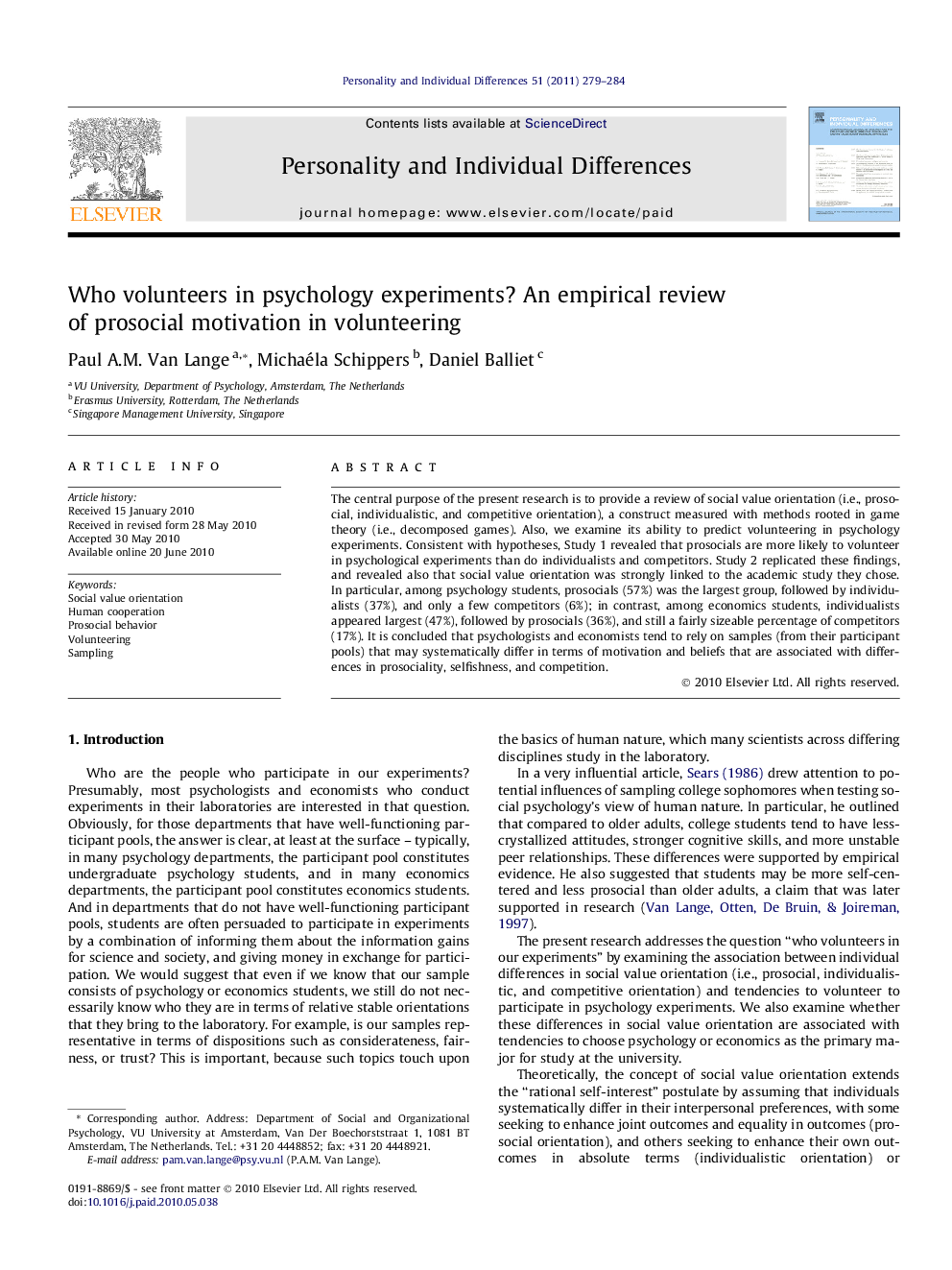| Article ID | Journal | Published Year | Pages | File Type |
|---|---|---|---|---|
| 10440638 | Personality and Individual Differences | 2011 | 6 Pages |
Abstract
The central purpose of the present research is to provide a review of social value orientation (i.e., prosocial, individualistic, and competitive orientation), a construct measured with methods rooted in game theory (i.e., decomposed games). Also, we examine its ability to predict volunteering in psychology experiments. Consistent with hypotheses, Study 1 revealed that prosocials are more likely to volunteer in psychological experiments than do individualists and competitors. Study 2 replicated these findings, and revealed also that social value orientation was strongly linked to the academic study they chose. In particular, among psychology students, prosocials (57%) was the largest group, followed by individualists (37%), and only a few competitors (6%); in contrast, among economics students, individualists appeared largest (47%), followed by prosocials (36%), and still a fairly sizeable percentage of competitors (17%). It is concluded that psychologists and economists tend to rely on samples (from their participant pools) that may systematically differ in terms of motivation and beliefs that are associated with differences in prosociality, selfishness, and competition.
Related Topics
Life Sciences
Neuroscience
Behavioral Neuroscience
Authors
Paul A.M. Van Lange, Michaéla Schippers, Daniel Balliet,
